Coronavirus Scams
Published: 01 April 2020
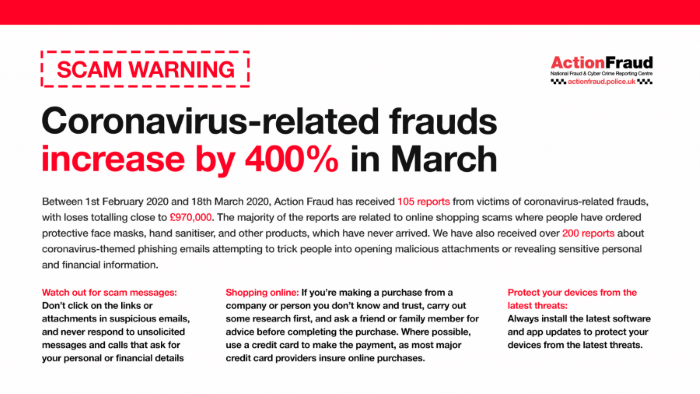
Action Fraud report that coronavirus related fraud reports have increased by 400% in March. See https://www.actionfraud.police.uk/alert/coronavirus-related-fraud-reports-increase-by-400-in-march for further details and the attached image for using on your local websites, newsletters, etc.
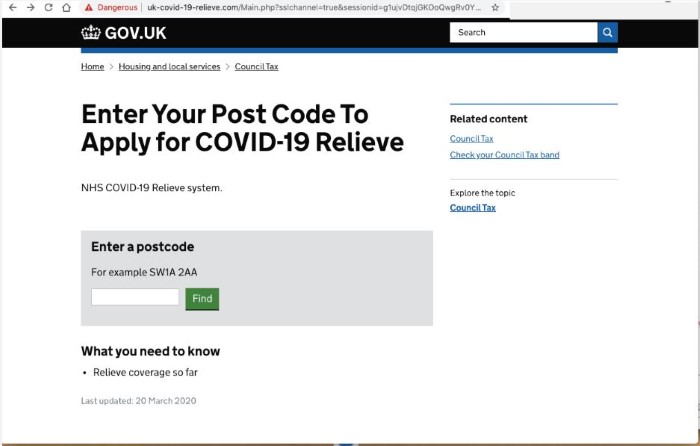
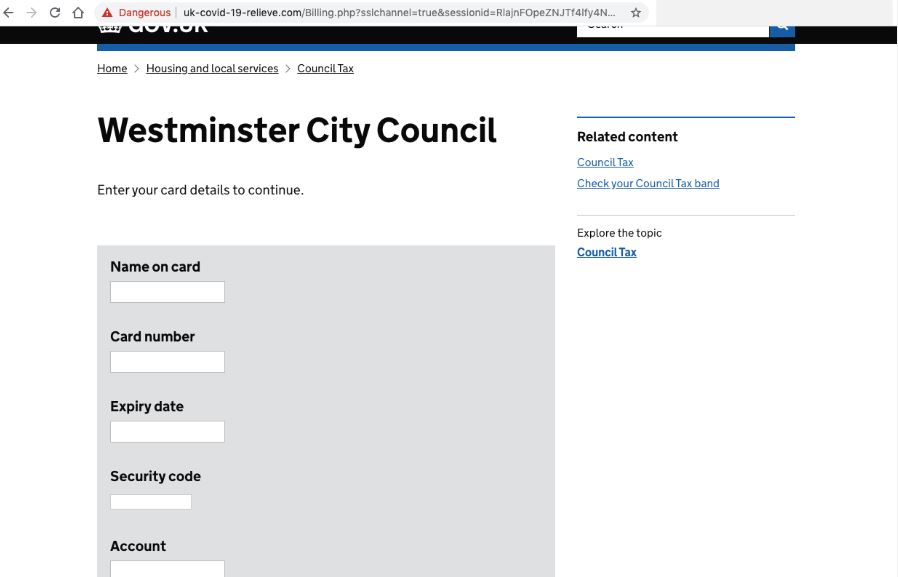
One common scam at the moment is the ‘Covid Relief’ scam (see two images attached). This is an example of number spoofing because this scam involves a text message that comes in on the same number as recent GOV.UK text messages informing of the new rules for social isolation. or those receiving it, it appears in the same text ‘conversation’ as the genuine government alerts which makes it very difficult to spot that it’s not genuine.
The messages claim to offer a payment to all residents as part of government’s promise to battle COVID 19. These texts provide a link to a copycat website that appears to be very official, using all the GOV.UK branding and may tempt the recipient into inputting their banking card details in order to receive the fictitious grant. Two clues show this is not genuine:
1) The phrase 'COVID-19 relief' is misspelled as 'COVID-19 relieve' and
2) the website url is a .com address whereas the government web address is .gov.uk
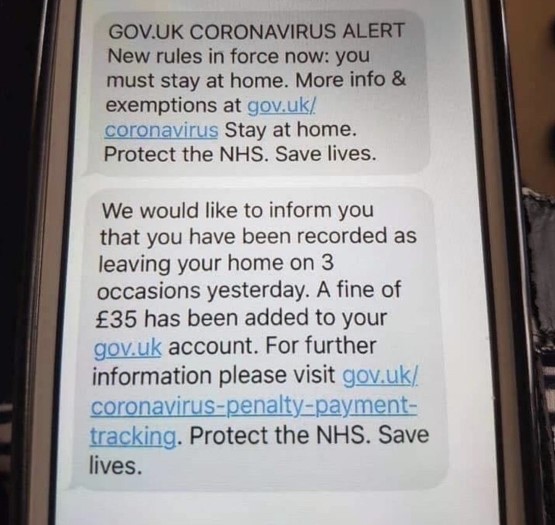
Another text scam that purports to be from the government is what I have nick-named the ‘Big Brother’ scam. This one also spoofs the GOV.UK number and suggests that the recipient is being fined for leaving their home. It includes web links or a phone number in the text which are designed to defraud. See BBC news article
here for more information.
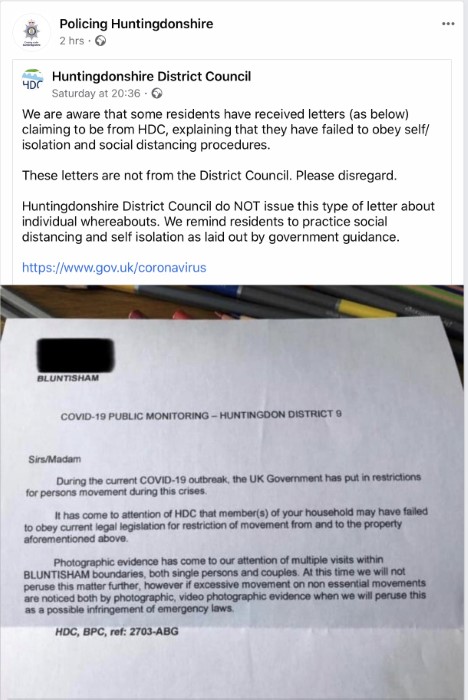 On a similar theme, but with a local flavour, reports have emerged of a bogus letter purporting to be from Huntingdonshire District Council and claiming that the recipient has contravened current government instruction to ‘stay at home’. Please see screen shot attached. I am not sure how the sender would achieve financial gain from this one unless it’s the precursor to a follow-up demanding payment but in any case it is worth noting it is bogus. And of course it could crop up in other local authority areas too.
On a similar theme, but with a local flavour, reports have emerged of a bogus letter purporting to be from Huntingdonshire District Council and claiming that the recipient has contravened current government instruction to ‘stay at home’. Please see screen shot attached. I am not sure how the sender would achieve financial gain from this one unless it’s the precursor to a follow-up demanding payment but in any case it is worth noting it is bogus. And of course it could crop up in other local authority areas too.